The UK’s net-zero ambitions are clear, but getting there will take more than policy.
Infrastructure needs to scale. Grid-scale storage needs to be delivered. And the right talent needs to be in place to make it happen.
Battery storage is fast becoming the backbone of the energy transition – balancing supply and demand, increasing flexibility, and enabling deeper integration of renewables. Projects are moving from pilot to pipeline at speed, but the talent pipeline hasn’t quite caught up.
At SR2 Clean Energy, we specialise in building expert teams across the clean energy ecosystem, with a growing focus on battery storage. We’re working with startups, scale-ups, and energy majors to find the people who can get these critical projects off the ground and onto the grid.
Why Battery Storage Talent Is in Short Supply
The battery storage boom is well underway. National Grid expects the UK to need 30GW of storage by 2030 – more than three times what’s currently installed or contracted. This rapid growth is creating fierce competition for a very specific set of skills.
And it’s not just within energy. Battery storage companies are competing with electric vehicles, aerospace, automotive, and other adjacent industries for power electronics engineers, control system experts, and integration specialists.
Key technical pinch points include:
- Power electronics & control systems – especially for Battery Energy Storage System (BESS) integration
- Grid compliance & connection expertise – understanding G99, ENA standards, and DNO/NGESO processes
- Software & SCADA engineering – to manage and optimise dispatch, safety, and grid interaction
With much of this talent still concentrated in other sectors or based overseas, the pressure is growing – particularly for UK-based roles requiring local grid knowledge.
What Makes a Great Battery Storage Team?
Battery storage projects need more than individual expertise. They need cohesive, capable teams that can take a project from concept to commissioning.
We see the following roles as critical to most battery storage builds:
- Electrical design engineers – with experience in HV/LV integration and protection design
- Grid connection specialists – who can navigate the full application, connection, and compliance process
- Software & controls engineers – with an understanding of EMS, SCADA, and remote monitoring platforms
- Commissioning & compliance leads – ensuring safe, standards-compliant delivery on site
- Project Development Managers – spanning various disciplines, from securing land and permits to managing stakeholders and ensuring financial viability. In essence, they are the architects of renewable energy projects, ensuring that wind, solar, hydro, and other sustainable energy sources transition from ideas into fully operational assets.
Technical know-how is essential, but so is collaboration. Battery storage projects often bring together people from diverse backgrounds like renewables, EV, and aerospace. The ability to work across disciplines, solve complex systems-level problems, and adapt in fast-moving environments is just as important.
Hiring Challenges for Clean Energy Employers
Even companies with a strong clean energy brand can struggle to hire well in battery storage. Why?
- The talent pool is small, especially in the UK. Many engineers come from fossil or manufacturing backgrounds, which may not translate directly.
- Safety and compliance requirements are non-negotiable. Hiring someone who’s “done something similar” isn’t always enough.
- High salary expectations are common, particularly for candidates coming from EV or automotive sectors.
- Unclear job titles or scope can deter the right candidates (or attract the wrong ones)
- Regional gaps remain a real challenge. Many battery storage projects are based in areas where specialist talent is thin on the ground.
These are solvable problems, but only with the right hiring strategy in place.
SR2’s Approach to Battery Storage Hiring
Our clean energy team works exclusively in this space.
We understand the pace, the pressures, and the pitfalls. And we know how to find the right people for the job.
Here’s how we do it:
- We help define the role – working with clients to shape the scope, title, and required skillsets before we start hiring
- We source across sectors – identifying transferable talent without compromising on compliance
- We understand location logistics – helping clients consider remote vs. onsite options, relocation, and workforce planning
- We prioritise long-term fit – looking beyond technical skills to team dynamics, values alignment, and growth potential
Case in point: One of our clients in Germany – a leading international engineering firm – was looking to make a key hire: their first full-time project developer to support a new joint venture battery storage site.
Given the technical nature of the role and its strategic importance, they needed a specialist recruitment partner with proven experience in Germany’s battery storage market. Someone who understood the niche technologies involved and could efficiently qualify candidates with the right expertise.
SR2 mapped the local market, taking into account travel requirements between the company’s HQ in Hamburg and the development site in Berlin. We delivered a shortlist of five strong candidates, resulting in five first-stage interviews, two on-site interviews – and one successful hire who is already making a positive impact on the project.
Final Thoughts
Battery storage is a critical enabler of the clean energy transition, but that can only happen if the right teams are in place to deliver. Our advice:
- Start hiring before you need to. Don’t wait until you’ve secured grid connection – plan your team in parallel.
- Be strategic about upskilling. Know when to train internally vs when to bring in niche expertise.
- Partner with specialists. A hiring partner who lives and breathes clean energy will save you time, stress, and mis-hires.
If you’re building out a battery storage team – or planning a project that needs one – we’d love to support you.
Let’s talk. We’ll help you find the talent that powers the transition.








